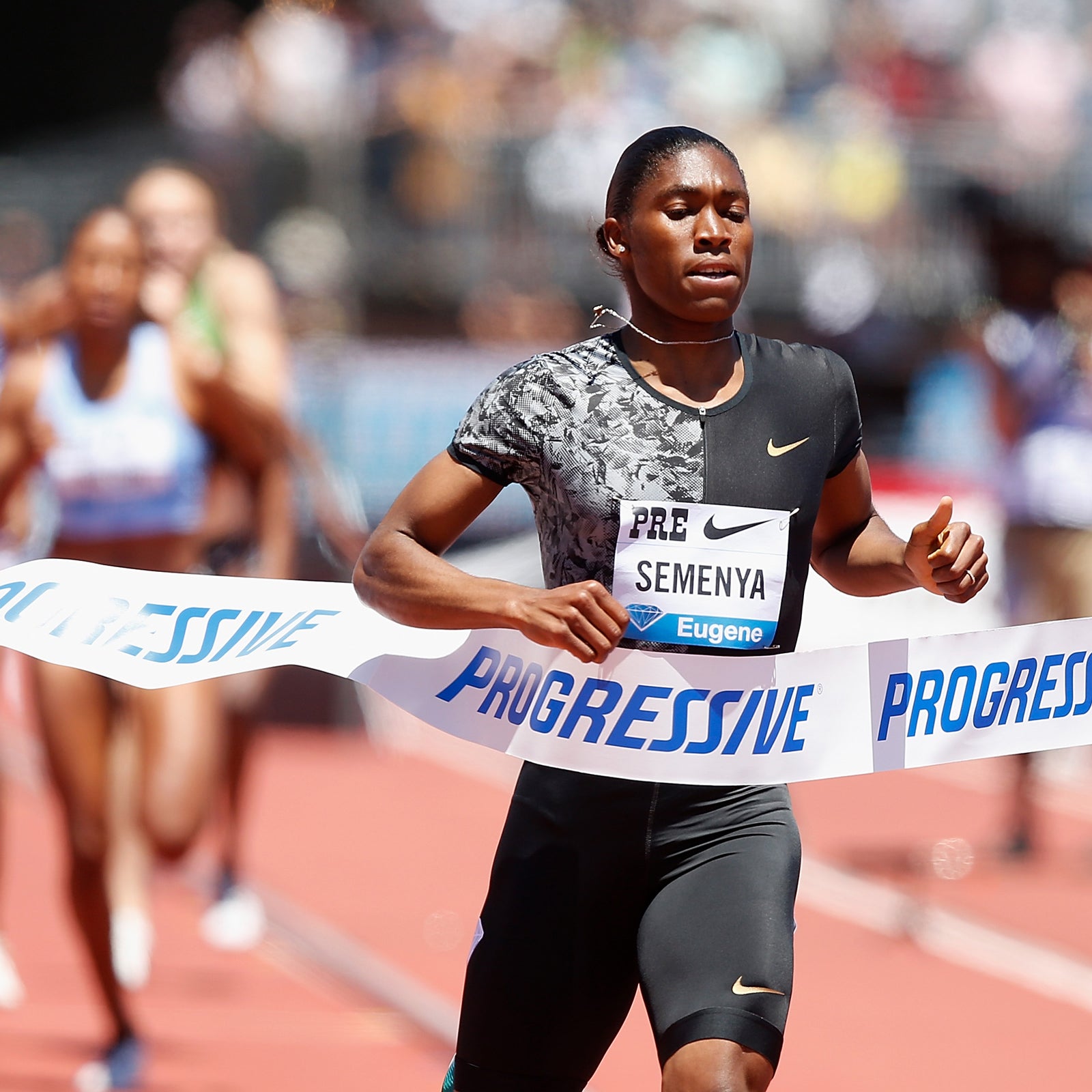This week, the Swiss Supreme Court a provisional suspension of the International Association of Athletics Federations’ (IAAF) new testosterone rules that had been granted exclusively to Caster Semenya. The South African 800-meter runner is trying to appeal a decision by the Court of Arbitration for Sport, which voted in favor of the IAAF in May. Among other things, today’s announcement effectively means that the two-time Olympic champion will not be allowed to defend her title at the IAAF World Championships this September. Furthermore, the specific language of the Swiss court’s announcement suggests that Semenya’s tenure as the world’s dominant half-miler is coming to an end.
After the Swiss Supreme Court temporarily exempted Semenya from the IAAF regulations on May 31, one of the big questions was whether this decision provided a clue as to what the court would ultimately decide on the larger matter of Semenya’s appeal. Back then, there was little to go on. This time, however, the way in which the court has justified the re-implementation of the IAAF’s rules gives reason to suspect that it is unlikely to overturn the CAS verdict.
Here is the key passage from a :
“The Swiss Federal Supreme Court concludes, in a first summary examination, that Caster Semenya's appeal does not appear with high probability to be well founded. The CAS, after thoroughly evaluating the expert evidence, found that the “46 XY DSD” characteristic has a direct impact on performance in sport, which could never be achieved by other women. Thus, with the participation of a female athlete with “46 XY DSD” in the “protected class women,” a basic principle of top-class sports, namely fair competition, is disregarded from the outset. The Swiss Federal Supreme Court is bound by this finding regarding the impact of “46 XY DSD” on performance. In the light of the arguments put forward by the CAS after extensive and thorough examination, namely the integrity of female athletics, neither the allegation of an infringement of the principle of non-discrimination, nor the alleged violation of “ordre public” due to an infringement of their personality and human dignity appears with high probability to be well founded.”
It’s not exactly the height of lucidity (in fairness, this statement was probably translated from German), but the court appears to be saying that it doesn’t have the power to re-adjudicate the CAS ruling. This is important because, as I have written previously, the scientific methodology of the IAAF’s justification of its testosterone rules has arguably been the governing body’s . With that removed from the equation, the debate moves into a theoretical (as opposed to scientific) realm, and here the IAAF is on much firmer ground. Indeed, although the statement from the Swiss Supreme Court stresses that it has not reached a final decision on Semenya’s appeal, it states that, on initial review, it doesn’t believe that such an appeal would be justified.
It’s also worth paying attention to another clause in today’s statement. The court notes that “its power of review in cases of international arbitration is very limited” and that it is by “no means a ‘Supreme Court for Sports,’ which could examine the matter freely.” Make of that what you will, but the Swiss Supreme Court has clearly chosen to emphasize the legal constraints it is working under. Since it would presumably take substantially more leverage to overturn a CAS ruling than to uphold it, this seems to be good news for the IAAF and bad news for Semenya.
Semenya is one of a handful of female athletes with so-called “Differences of Sex Development,” who have both X and Y chromosomes, and testosterone levels which, , are often in the male range. In 2018, the IAAF introduced new regulations that would require DSD athletes looking to compete internationally in any distance from the 400-meters to the mile to artificially lower their T-levels to below 5 nmol/L.
A few days before these new testosterone rules officially went into effect on May 8 of this year, Semenya won the 800-meter race at the . After the meet, Semenya that she would never artificially reduce her testosterone levels, prompting speculation that she had just competed in her last 800. However, later that month, Semenya’s legal team submitted the appeal of the CAS decision with the Swiss Supreme Court, garnering Semenya her temporary exemption from the IAAF’s new regulations. This, in turn, cleared the way for her to participate in the 800-meters at the on June 30. Once again, Semenya cruised to victory; her time of 1:55.70 was the fastest ever run by a woman on U.S. soil.
It’s worth pointing out that we are still waiting on an official decision regarding Semenya’s appeal, and that the predictive significance of today’s announcement is pure conjecture. However, if the CAS decision stands, it would most likely signify that the reign of the most dominant 800-meter runner in history has come to an end.
“First chapter of my life done,” Semenya , “looking forward to my second chapter.”


